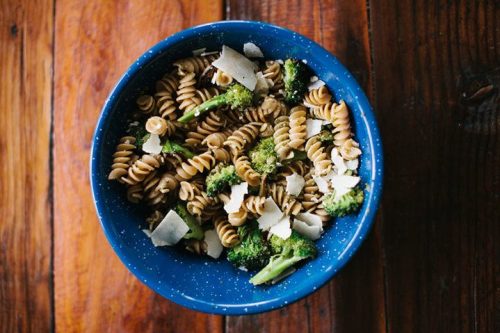Do you need to go gluten-free if you don’t have celiac disease?
A broad, long-term study shows that, for people who don't have celiac disease, going gluten-free does not reduce the risk of heart disease.

Avoiding gluten is about as eyebrow-raising as ordering a latte with almond milk—AKA pretty commonplace at this point. Even many people who don’t have celiac disease have nixed it from their diets since it has been linked to inflammation. The news as of late has overwhelming been that wheat is bad—which is why a new study suggesting something, well, different, is so interesting.
Researchers tracked over 6,500 people for 26 years and found that people without celiac disease who eat gluten are actually not at a higher risk of developing heart disease, something often caused by (drumroll) inflammation. But there’s a catch: Their diets were also rich in whole grains. People who consumed a lot of gluten but few whole grains were more likely to develop heart disease.
“The promotion of gluten-free diets among people without celiac disease should not be encouraged.”
So what does this mean exactly? It’s all about the whole grains, and gluten is an ingredient in a majority of the whole-grain breads, pastas, and cereals out there—basically, anything made with wheat. “The promotion of gluten-free diets among people without celiac disease should not be encouraged,” the study reads. How’s that for clear advice?
And yes, you can always eat whole grains that aren’t wheat—like overnight oats, quinoa pasta, and food activist and author Michael Pollan’s favorite: fermented sourdough bread. But, if you don’t have gluten sensitivity or celiac disease, it sounds like there’s no need to deny yourself a bowl of whole wheat spaghetti every now and then.
If you legit think you have celiac disease, the problem might actually not be gluten, but something else. And this anti-inflammatory food pyramid will help you figure out how to build the ultimate healthy diet.










